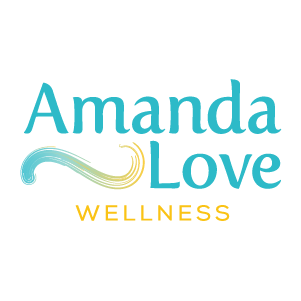These are Nourishing Foods I  Emphasize Eating for Good Health
Emphasize Eating for Good Health
- PASTURE RAISED or WILD MEATS and SEAFOOD (Including ORGAN MEATS), EGGS, RAW DAIRY: Eat animal protein that has been pasture raised, grassfed or from the wild for the optimal amount of nutrition and to support a healthier planet. Animals only contain a rich amount of Vitamin D if they have been raised outside.Their meat contains a much higher amount of amino acids if they are free range rather than grain fed. Organ meats like liver contain some of the highest amounts of vitamins and minerals. If you consume dairy, find a source that is raw, unpasteurized and unhomogenized. Visit www.realmilk.com for more information and to find sources of raw dairy in your area.
- FATS I EAT: Butter, Cream, Egg Yolks, Lard, Beef Tallow, Chicken Fat, Coconut Oil, Palm Oil, Ghee, Olive Oil, (Flax and Cod Liver Oil – not for cooking)
- FATS I AVOID: Soy, Corn, Cottonseed, Canola Oil and any other other rancid, liquid oils that are too high in Omega 6
- FATS I WILL EAT OCCASIONALLY – it is ok to eat the following fats in very small amounts: sesame, peanut, safflower, sunflower oils as well as nut oils like walnut oil, pecan oil, macadamia nut oil, etc (make sure they are not rancid and kept in a cool, dark place)
- SALT: Not all salt is created equal. Use unrefined salt that is from the sea, earth or mountains. Avoid salt that has been refined, bleached and has added anti caking agents (this includes most grocery store and restaurant salt). There are many “alternative” good salts available these days including Himalayan, Celtic, Real Salt, Hawaiian Red, Premier Research Labs Salt and more. You can find most of these in health food stores or online.
- CULTURED FOODS: All traditional cultures ate some kind of fermented or cultured food like sauerkraut, kim chi, sourdough bread, yogurt, kefir, buttermilk, kvass, unpasteurized beer and wine, raw cheese, pickles, miso, etc. Eating some kind of fermented food with meals will add enzymes and beneficial bacteria to your gut and greatly enhance your immune system and energy.
- GRAINS: If you choose to eat grains in your diet, make sure they are organic, not genetically modified and prepare them so they are digestible by soaking, sprouting and ideally souring them as well. Make sure your body is okay with eating grains.
- BEANS: To make beans so they are the most digestible, soak them covered in water overnite. Rinse well the next day. If you have time, soak them overnite again in plenty of water. Rinse well. Then cook on low with plenty of water with a piece of seaweed for added minerals (like kombu, wakame, dulse or nori) until tender. Add apple cider vinegar or umeboshi plum vinegar, herbs and spices and good salt at the end of cooking.
- NUTS AND SEEDS: To make nuts and seeds the most digestible, it is really best to soak them them overnight (or until the nuts become hydrated (they will look puffed up)) in water. You can turn them into crispy nuts by dehydrating them until dry or roasting on low with a touch of salt in the oven at 150 degrees overnight.
- VEGETABLES: Eat veggies!! If you can only eat one vegetable, eat something green. Emphasize vegetables that are in season and ideally grown locally and without chemicals or organically grown. Eat roasted, steamed, sautéed, grilled, raw…
- FRUITS: Make sure to eat fruit in season meaning eat the fruit that nature gives to you in the season it is grown. Make sure to eat fruit that is organically grown or free of chemicals. Biodynamically grown fruit is some of the best fruit you can eat. Fruit is generally best to eat alone or before other foods for optimal digestion. If you are going to eat fruit in the non-summer months, make sure you are burning plenty of calories to burn off all the sugar. Eating fruit when it is cold out and when you are not building sufficient heat in your body to burn off the sugar can lead to candida overgrowth or dampness conditions in the body.
